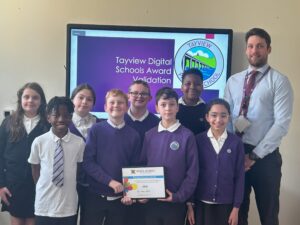
St Mary’s Primary wins Digital Schools Award
Head teacher Stephanie Fisher expressed immense pride in the school’s achievement. “We are thrilled to receive the Digital Schools Award, which is a testament to the hard work of our dedicated staff and students. It’s not just about using technology for the sake of it; it’s about enhancing the educational











